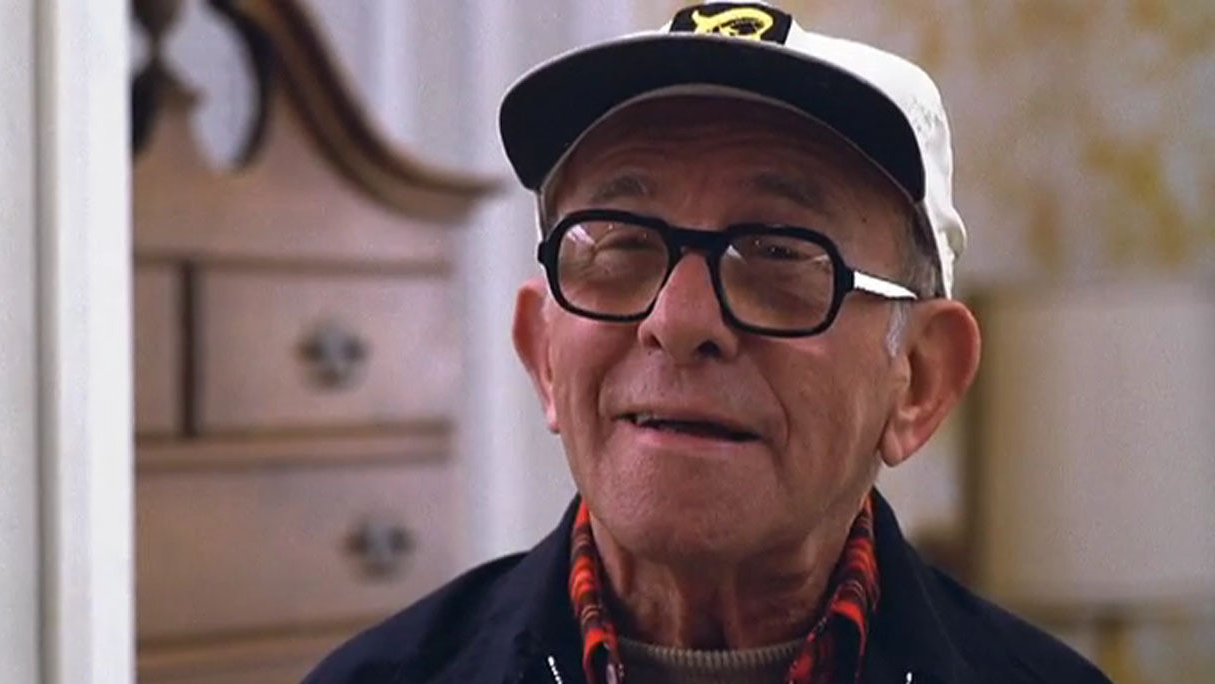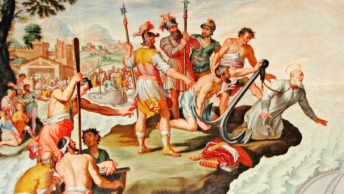A priest once gave a homily on the need for faith. After Mass a man came up and said, “Father, those were nice-sounding words, but I don’t buy them. I won’t believe what you just said until you explain to me why God allowed evil and suffering to come into the world.” The priest responded gently but firmly, “My friend, that’s a foolish attitude, and I’ll prove it. Imagine you’re on the fourth floor of a hotel and a fire breaks out. You ignore the warnings and alarms—until the flames reach the fourth floor. You go the window of your room, and the firemen down below urge you to jump into their net—but you say, ‘No, I’ll not come down until you explain to me how and why the fire started.’ Is that a reasonable attitude?” The man was forced to admit that, no, it wasn’t; a demand for immediate answers might make it very difficult to be saved (Msgr. Arthur Tonne, Stories for Sermons, Vol. 11, #149). The same thing is true for faith. While it’s natural for us to want answers to our most important questions, it’s foolish to expect to know and understand everything immediately. We have to work toward this, even if we have doubts, and we have to begin the process right away, instead of putting it off until it might be too late. When someone shouts “Fire!,” we have to take this warning seriously and act instantly; when someone proclaims “Jesus is Lord!,” we also have to respond. Faith is a gift, but it isn’t just handed to us; we must do something to show we want it.
The description of the early Church given in Acts of the Apostles (2:42-47) might make it seem the original Christians lived in a perfect community, without any problems or concerns— but in fact, they had to use God’s grace to overcome their weaknesses, including misunderstandings, fears, and doubts. St. Peter (1 Pt 1:3-9) tells us in that suffering for our faith helps purify it, making it more precious than gold, while at the same time honoring Jesus Christ. Believing in and obeying Him, despite any doubts we might have, is a powerful sign of our religious commitment.
Thomas the apostle (Jn 20:19-31) had to learn this lesson. It was difficult for him to take the first step of believing in the Risen Christ—even though Jesus had predicted He would die and be raised up on the third day. We might imagine Thomas saying to the other apostles, “Jesus—risen? C’mon, guys, be reasonable. Things like that don’t happen these days. Oh, sure, miracles occurred in the past, but not in our modern world. Look, I want to believe just as much as you do, but we have to be realistic.” Thomas was willing to believe in Jesus only when he saw Him directly, or only when it was easy. Jesus gently chided him for this: “Do not be unbelieving, but believe.” There may be times when we’re like Thomas, times when we don’t take Christ’s teachings seriously, thinking to ourselves, “Love our enemies? Pray for those who hate us? Forgive everyone? C’mon, be realistic.” If we think like this, Jesus might say, “What does it take to convince you I really mean it? Put your hand in My side—see what I suffered for you—and believe.”
There was once a man who realized he was wasting his life; his faith was very weak, and it seemed God had deserted him. In desperation he prayed, “Lord, just give me back my peace of mind, and I’ll do anything You want.” Then it seemed as if God were speaking directly to him; the message was, “Start living out the Gospel; start living by My Son’s teachings, even though you don’t understand them.” The message was unmistakable, and so the man resolved to do this; from that moment on he tried to live entirely according to the teachings of Jesus. It wasn’t always easy, and sometimes he failed, but he did make the effort—and his life turned around. The man found meaning and peace, and in the process he learned an important lesson. As he said, “I learned to hear the word [of God] and act upon it” (Mark J. Link, S.J., Illustrated Sunday Homilies, Year A, Series I, p. 33).
This lesson is simple but profoundly important: faith isn’t only believing; it’s also acting on that belief. I remember the 1977 movie “Oh, God!,” in which the actor George Burns played Almighty God Himself. One line in particular stood out for me; God said, “I know these are difficult times in which to have faith—but maybe if you had the faith to start with, the times would change.” Faith isn’t just about believing in God’s existence; it’s also about allowing this belief to change our world, and change ourselves. One Catholic scholar said, “If you want to strengthen your faith, don’t add to your intellectual arguments for believing, but weed out your passions”—in other words, we must work to overcome our faults, make a serious effort to grow in virtue, and try to live as Jesus taught.
Faith becomes real when we show we want it; faith becomes powerful when we strive to live it. It’s not supposed to be easy to believe, especially when faith contradicts worldly “wisdom.” God gives the gift of faith, but we must express our desire for it—as in the example of the father of a possessed boy who once cried out to Jesus, “Lord, I do believe; help my lack of belief!” (Mk. 9:24). If we but make an honest effort to live out the faith we’ve been given, God will sustain us, and Jesus’ words will be true for us: “Blessed are those who have not seen and have believed.”








